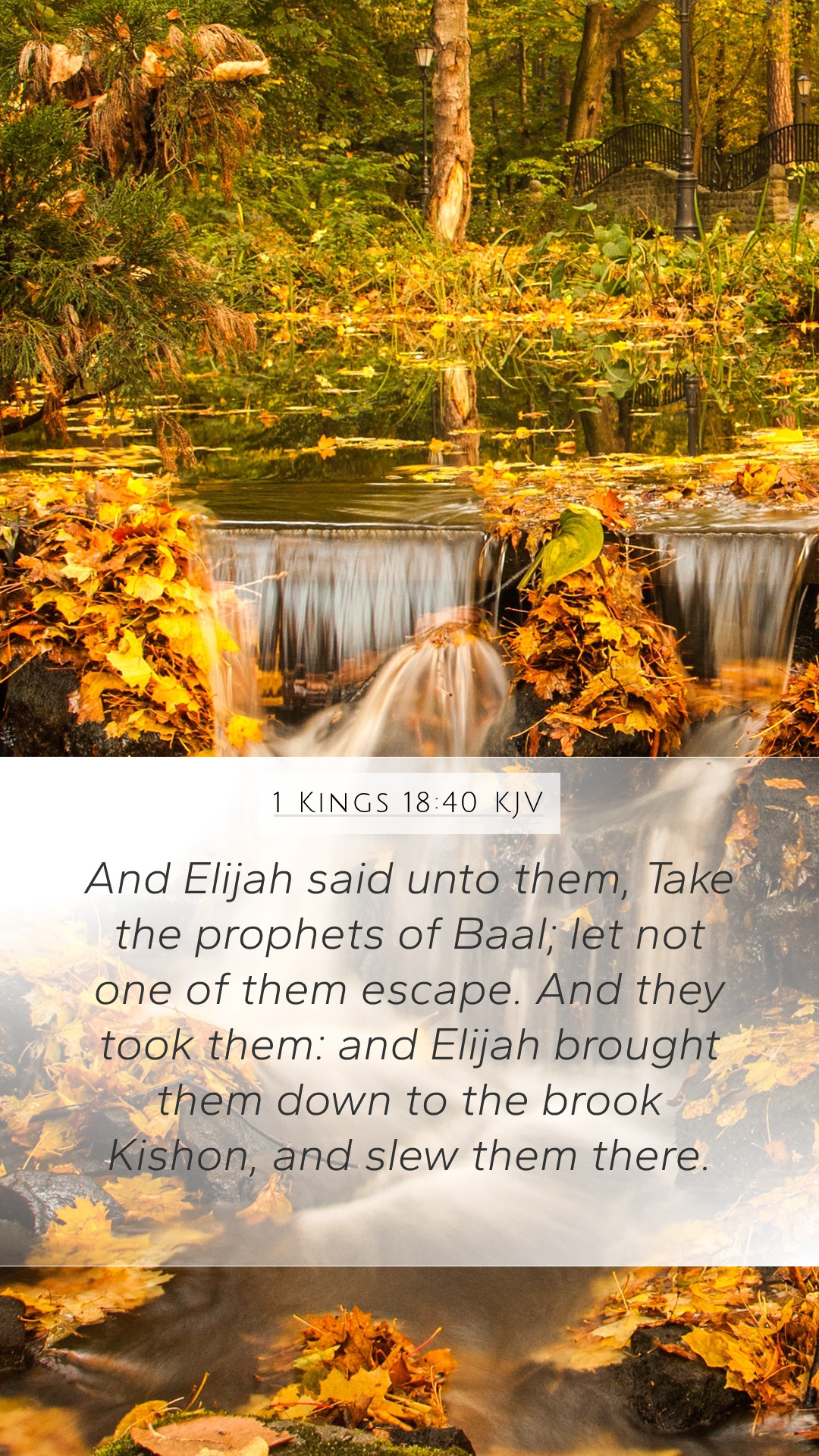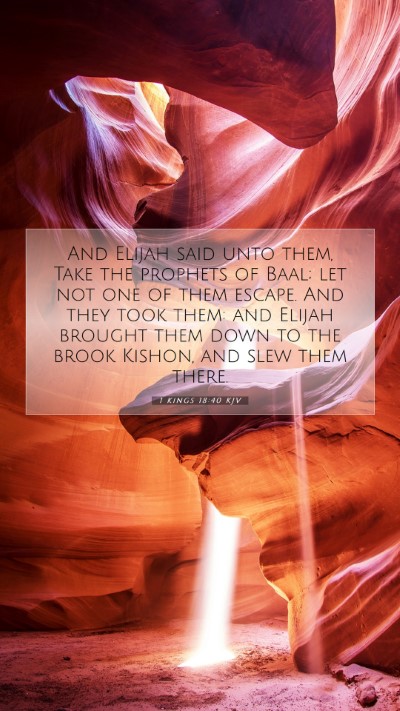Understanding 1 Kings 18:40
In 1 Kings 18:40, we read, "And Elijah said unto them, Take the prophets of Baal; let not one of them escape. And they took them: and Elijah brought them down to the brook Kishon, and slew them there."
This verse follows the dramatic confrontation on Mount Carmel between the prophet Elijah and the prophets of Baal, where Elijah proves the supremacy of the Lord God over the false god Baal.
Summary of Key Themes
This passage has several critical themes worthy of examination:
- The Judgment of False Prophets: Elijah's command to seize and slay the prophets of Baal underscores the serious consequences of leading people away from the truth of the one true God.
- Divine Authority: The passage emphasizes God's sovereignty and the power He gives to His prophets to execute judgment against idolatry.
- Purity of Worship: The act of removing false prophets was a way to maintain the purity of worship for Yahweh, as false worship leads to moral and spiritual decay.
- Fulfillment of Divine Prediction: The judgment executed reflects the prophecy and divine warning that comes with disobedience to God.
- Historical Context: Understanding the historical backdrop of the conflict between the worship of Yahweh and Baal worship is essential for grasping the significance of Elijah’s actions.
Bible Verse Interpretations
Various scholars have provided interpretations of this passage that enrich our understanding.
-
Matthew Henry:
Henry emphasizes that Elijah's act of slaying the prophets was a necessary measure to eradicate the idolatrous influence from Israel. He notes that this led to a restoration of true worship among God's people. The judgment is seen as a righteous response to the people's sins.
-
Albert Barnes:
Barnes points out the significance of the brook Kishon as the execution site, which not only had geographical relevance but also served as a symbolic place of divine justice. It marked a defining moment in Israel’s spiritual revival.
-
Adam Clarke:
Clarke remarks on the seriousness of the command given by Elijah and connects it with the need for the Israelites to understand the true nature of God. He suggests that this episode serves as a stark warning against apostasy.
Bible Study Insights
For those engaging in Bible study, the insights gathered from this verse can lead to deeper reflection on the themes of judgment, the nature of true worship, and the consequences of leading others astray.
Engaging with this passage in Bible study groups or online Bible study resources can help individuals understand the context and implications of God’s actions through Elijah.
Application of Scripture
The application of 1 Kings 18:40 in today’s context invites believers to examine their lives for any influences that may lead them away from God. It calls for:
- Discernment: Understanding the principles of true worship and being vigilant against false teachings.
- Commitment to Purity: Removing any form of idolatry in one's life can be a part of living authentically for God.
- Advocacy for Truth: Standing firm in proclaiming and defending the truth of God in a culture filled with competing ideologies.
Related Bible Cross References
A few relevant cross-references that expand our understanding of this theme include:
- Deuteronomy 13:1-5: Guidelines on dealing with false prophets and idol worship.
- 1 Kings 18:20-21: The challenge posed by Elijah to the prophets of Baal.
- 2 Kings 10:19-28: The continued judgment against the house of Ahab and the removal of Baal worship from Israel.
Conclusion
In conclusion, 1 Kings 18:40 serves as a powerful reminder of the seriousness of idolatry and the importance of remaining faithful to God. It highlights the expectations set upon believers to worship God in truth and spirit, shedding light on significant concepts such as divine judgment and prophetic authority in Scripture.
For those in pursuit of deeper Bible verse meanings and interpretations, this verse offers a rich ground for study and reflection, coupled with the historical context and theological implications at its core.


